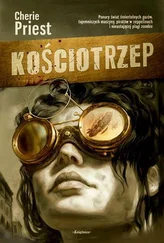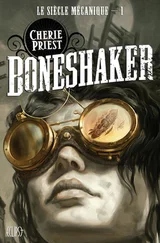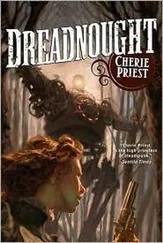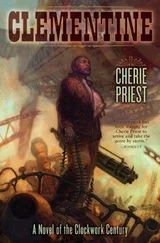Desmond Fowler did not quite squirm, but was clearly uncomfortable. “I’m not sure I understand.”
“The war can’t go on forever, but if a Union victory costs all hope of reconciliation, then what have we truly won? Shall we govern a conquered, resentful people by force—until they rally to rebel again? Or shall we welcome our fellow citizens back into the fold?”
“Obviously one hopes to welcome one’s fellow citizens,” Fowler tried carefully. “But Alabama and Mississippi still cannot agree with Lincoln—or yourself—regarding who is a citizen, and who constitutes property. Reconstructing the Union will be an uphill battle regardless of how the war is concluded. The question is not one of tactics, but of expediency.”
“And there you go again—now you’ve turned the matter into a binary. Another absolute. We can end the war expediently, tactically, without … without…”
“My program is the fastest, most efficient option.”
“The most brutal, you mean. Killing Americans, civilian and soldier alike.”
“Killing Confederates, and thereby ending the conflict.”
“And killing our own men, too. God knows how many of them. You’ve said it yourself, there’s no safe means to deploy such weaponry. Not without tremendous casualties to both sides. We’d have to lie to our soldiers, assure them we aren’t leading them to their deaths.”
“All soldiers assume, or at least suspect, that they’re being led to their deaths. And as for the deployment, we’re working on that,” Fowler assured him. “And sir, we must be pragmatic. The simple fact is that we have more men to lose than they do. If it costs us a handful to kill thousands of the enemy, then we—”
“The enemy ? Our fellow Americans, you mean.”
“No, sir. Not anymore. By their own choice, and their own hand. Some days, I don’t understand why we fight so hard to keep them, when they fight so hard to get away.”
It was true, and Grant knew it. True, anyway, that Desmond Fowler didn’t understand why the Union should be preserved, or that the men and women on the other side of that line were not all godless foreigners. They were not dogs to be killed or tamed, any more than the Union armies were fodder to be sacrificed in pursuit of … what, precisely?
The Great Experiment.
Leaving a nation in the hands of its people, to govern itself. A terrible risk barely a hundred years old, and it could not fail so soon, so completely. Grant believed that with all his heart, because if a successful democracy was not possible, then what alternative was there? Chaos or kings, he supposed. And he regarded both with equal dismay.
“Sir, you want to end the war,” Fowler started afresh.
“Doesn’t everyone?” The president asked it too flippantly, given the company.
“My program is our best option. Not the prettiest, not the easiest political decision—no one’s trying to make that case. But it’s for the best, and we need your authority to proceed. We need your signature to release the funds from the War Department. Otherwise the program will languish, and we will miss our window of opportunity.”
“I’m sure another one will open. I just … I can’t. Not yet. Come back when you have more information, better numbers, or a better idea of how, exactly, this weapon would work. At present, you can’t even guess the extent of the damage. There’s no research to say that it won’t poison the land for a thousand years.”
“You’re asking for guarantees.”
“I’m asking for absolutes. I thought you liked those.”
“But that could take weeks! Months!”
“Then you’d better get started,” Grant said, as he flicked a glance toward the door. He heard a familiar noise approaching from down the hall, and was relieved to realize that he’d discovered a way out of this interminable, wheedling conversation. “Right now, I think. I have another visitor, and I need a word with him in private.”
Before Desmond Fowler could muster a response, the incoming hum grew louder and a mechanical chair appeared in the doorway. Fowler sprang to his feet, and made a small, formal bow. “Mr. Lincoln, sir.”
President Grant got to his feet somewhat more slowly, but he was balancing his weight against the alcohol in his blood. He leaned on the arm of his sturdy chair and smiled a greeting. “Abe, it’s good to see you. Come on in. Pull up to the fire. Fowler was just on his way out.”
For a moment, Grant thought Fowler might fight him on it—that he might scramble for some excuse to stay, some flattery he might apply or some social pressure he might leverage. Thankfully, he decided against the effort in time to politely bow again.
“Yes, I was just leaving. But it’s been a pleasure as always, Mr. President. And Mr. Lincoln.” He retrieved his overcoat from a rack by the door and took his leave.
When Grant and Lincoln were confident that Fowler was well out of hearing range, Lincoln adjusted his chair, backing up and pulling forward again so he could shut the office door. While he did this, Grant moved his normal guest chair aside to make room at the hearth.
Abraham Lincoln said, “I was afraid you’d be in the yellow oval. It’s a fine office, but I find it hard to reach, these days.”
“Nah. I don’t like that office. Too big, too much to look at. I can’t get a damn thing done in there. Can I get you a drink?”
“No, thank you. But don’t let my temperance stop you from having another.”
“I never do.” President Grant refreshed the whiskey before dropping back into the big armchair. Its leather had become so fire-warmed that it stung, but he liked the sharp heat seeping through his clothes.
Lincoln removed the blanket that covered his knees, folding it over the arm of his chair. His long, knobby legs leaned slightly to the right, and his shoulders stooped to the left, but the chair had been created with his height in mind and he looked more or less comfortable. Minus the eye patch, and with the addition of his infamous hat, he might have looked like he was just sitting down and not confined there.
“What did Fowler want you to sign this time?”
“Something for the War Department. I told him no.”
“Then he’ll be back,” Lincoln said quietly.
“Well, he is the Secretary of State. If he didn’t come back, I’d have a problem. Another problem, I mean. There are always plenty to go around.” He changed the subject, fishing for a more casual tone or topic. “So, why are you out and about tonight? I’m always happy to see you, but I thought Mary had some kind of party she was using to hold you hostage.”
“That was last night, and I didn’t attend. I’m not much of a dancer anymore.” He smiled, and the top of his scarred cheek disappeared under the edge of his eye patch. “I never liked parties much, anyway.”
“Me either. But I hope it went well.”
“I expect that it did. Now, let me ask you something: Have you heard about what happened to the Jefferson?”
A memory flickered at the back of Grant’s mind. He’d heard something that morning, part of a briefing that had piqued his interest. “The science center? They told me there was an explosion last night during the party.”
“Correct.”
“And you have people working out there, don’t you? That scientist from Alabama?” They’d met once or twice in passing at the Lincolns’ house. Grant recalled a quick, impatient colored man, with eyes too old for a man still in his thirties.
“Gideon, yes. That’s him. He was there when it happened.”
“Dear God … did he survive?”
“Oh yes, yes indeed. Some of his work was lost, but he saved as much as he could. Quite a lot of information, considering.”
Читать дальше










